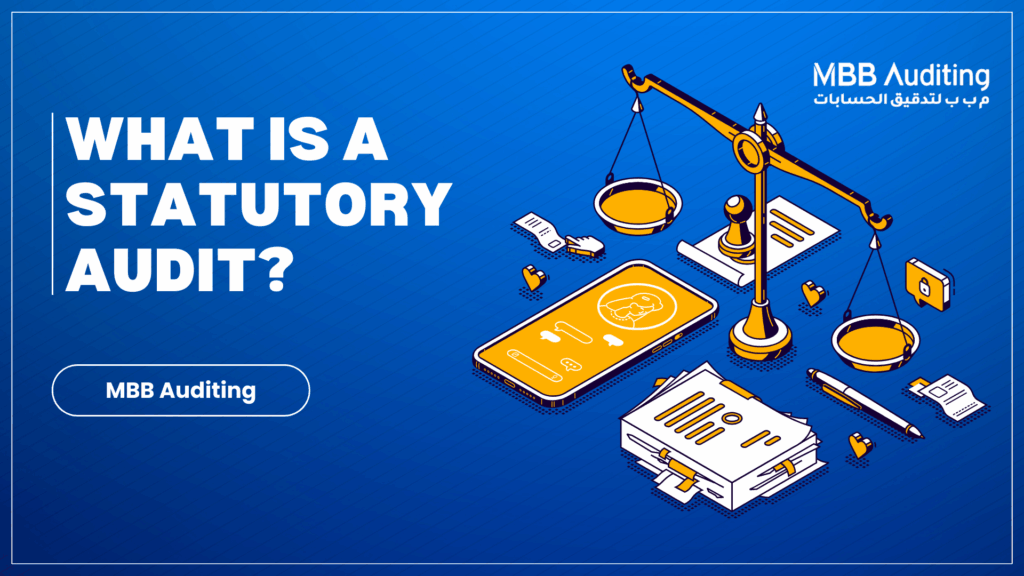A statutory audit is a legally mandated examination of a company’s financial records to ensure accuracy, transparency, and compliance with accounting standards and regulations. It is conducted by an independent auditor or audit firm to provide an unbiased opinion on whether the financial statements present a true and fair view of the company’s financial position.
In Dubai, statutory audits are a crucial requirement for many businesses, ensuring adherence to local laws and international financial reporting standards. The key aspects of statutory audits, their importance, and the specific requirements for companies operating in Dubai.
Why is a statutory audit required?

Statutory audits serve several essential purposes:
- Legal Compliance—Many jurisdictions, including Dubai, require certain businesses to undergo annual statutory audits as per commercial and regulatory laws.
- Financial Accuracy—Audits help detect errors, fraud, or misstatements in financial records, ensuring reliability for stakeholders.
- Investor & Stakeholder Confidence—Audited financial statements enhance trust among shareholders, investors, and creditors.
- Regulatory Transparency—Government authorities and tax agencies rely on audited reports to verify compliance with financial regulations.
Statutory Audit Requirements in Dubai
In Dubai, statutory audits are governed by various regulatory bodies depending on the type of business entity:
1. Commercial companies and federal law:
- Every joint stock company or limited liability company in the mainland should have one or more auditors to audit the accounts of the company on a yearly basis.
- The companies are required to apply the International Accounting Standards and Practices in the preparation of its periodical and annual accounts
2. Commercial companies and federal law:
- For the renewal of a free zone trade license, companies that are registered in a free zone and own a free zone trade license shall be required to submit an audited annual financial statement.
3. UAE Corporate Tax Law:
- All taxable persons deriving revenue exceeding AED AED 50,000,000 (fifty million) during the relevant tax period and all Qualifying Free Zone Person(s) (regardless of its Revenue).
- are required to prepare and maintain audited financial statements.
- In the case of all other taxable persons, the Federal Tax Authority can ask for financial statements from any taxable person.
4. Other legal requirements.
- Free zone companies are also required to submit the audited financial statement to the prescribed authorities. For instance, as per DMCC regulations, companies registered with FZP must submit the audited financial statements within 180 days from the end of the financial year. Dubai World Central (DWC), Dubai Airport Free Zone (DAFZA), Jebel Ali Free Zone (AFZA), Dubai Silicon Oasis (DSO) and Dubai International Financial Center (DIFC) also require the free zone companies to submit the audited financial statements within the stipulated timelines.
- Foreign companies are mandatorily required to submit audit reports, along with the audited financial statements of their branch registered in the UAE, every year.
- The liquidator’s audit report of companies under liquidation is prepared based on the audited financial statements.
5. For Management Decisions
- In order to gain a better understanding of their finances, assessment of business progress, and evaluate the performance of such an entity, certain companies in the United Arab Emirates have had their books audited.
- The auditor shall review the books of accounts and provide appropriate information for management decisions. To provide shareholders with a clear picture of the company’s net worth, the owners of the company get the books of accounts audited every year.
6. Third-Party Requirements
- Banks, non-banking financial institutions, and other lenders insist companies to get their books of accounts audited by an audit firm.
- In order to guarantee the financial creditworthiness of companies dealing with them, dealers and suppliers require such companies to submit audited financial statements.
Who Can Conduct a Statutory Audit in Dubai?
Only registered and licensed auditing firms or auditors approved by the relevant authorities (such as the UAE Ministry of Economy or free zone regulators) can perform statutory audits. Businesses must ensure their chosen auditor is qualified and recognized by the respective jurisdiction.
Key Steps in a Statutory Audit Process
- Planning & Engagement—The auditor reviews the company’s financial systems and plans the audit scope.
- Internal Controls Assessment—The auditor evaluates the effectiveness of internal financial controls.
- Evidence Collection—Financial documents, transactions, and records are examined.
- Reporting—The auditor issues an audit report with an opinion (unqualified, qualified, adverse, or disclaimer).
- Submission—The final audited financial statements are submitted to the concerned authorities.
Penalties for Non-Compliance
Failure to conduct a statutory audit in Dubai can result in:
- Fines imposed by regulatory authorities.
- Suspension or cancellation of trade licenses.
- Legal consequences for company directors.
Conclusion
A statutory audit is a mandatory requirement for most businesses in Dubai, ensuring financial integrity and regulatory compliance. Whether operating in the mainland, free zones, or offshore, companies must engage approved auditors to fulfill their statutory obligations. By adhering to audit requirements, businesses can maintain transparency, avoid penalties, and build credibility with stakeholders.
If your business requires professional audit services, ensure you partner with a licensed audit firm in Dubai to meet all legal and financial reporting standards.

